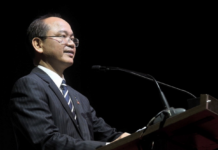PETALING JAYA,Dec 3: Greater emphasis needs to be placed on ensuring employees enjoy a healthy work-life balance, according to a mental health expert and a trade union leader.
Chua Sook Ning, founder of mental health advocacy and education group Relate Malaysia, said being overworked and stressed could put people at greater risk of developing non-communicable diseases such as diabetes, hypertension and high cholesterol.
She told FMT that fostering a healthy work-life balance required active participation from workers and employers alike, as poor mental wellbeing could lead to serious physical conditions and loss in productivity.
“Studies have been done in a few countries into the four-day workweek and results have been promising. People aren’t becoming any less productive or missing their targets,” she said, admitting, however, that Malaysia was probably not culturally ready for such a big shift.
“Another strategy I like is not texting or emailing after work, so there is a clear separation between work and leisure. If your boss sends you a message, there is always going to be this compulsion, the obligation to respond.”
Recently, Khazanah Research Institute, in its paper on ”Social Inequalities and Health in Malaysia”, said more than a quarter of all Malaysian workers suffered from mental health problems, after noting that the workplace was one of the biggest factors determining one’s health.
In addition, the “Best Cities for Work-Life Balance 2020” study conducted by US-based security specialist Kisi ranked Kuala Lumpur 47th out of 50 major cities, recording the longest average time spent working and commuting a week (52 hours) and finding 21% of the population was overworked (defined as working more than 48 hours a week).
Given the increased stress caused by the Covid-19 pandemic, Chua said employers needed to be particularly conscious of ensuring their workers had good mental health by understanding that productivity might not meet pre-pandemic levels.
She said they should give their workers emotional and mental support.
“If you’re an employer, you need to understand that your workers are stressed at the moment. Even if the workplace isn’t the cause, you have to remember that the whole world is very stressful at the moment.”
She advised workers not to try to “catch up on life” when they got home from a long day at the expense of sleep, as getting adequate rest could prevent both mental and physical illness.
Meanwhile, Malaysian Trades Union Congress deputy president Mohd Effendy Abdul Ghani said the government needed to follow international standards such as adopting a 40-hour work week as opposed to the 48 hours currently stated in the Employment Act.
“Many workers in the service sector, particularly private sectors workers, dare not leave the office on time. If they do so, they may be labelled in their year-end appraisals as ‘lazy’ or ‘non-productive’,” he said.
This adds hours to a workweek that already ranks among the world’s longest.
He agreed with Chua that while the advent of technology had made workers more productive, it also allowed the stresses of work to follow them home.
He called on the government to establish and enforce barriers between workers and their superiors so that employees could effectively disengage when they left the workplace.
This, he said, could “provide a better employee experience and possibly boost retention and offer other long-term benefits”.
















